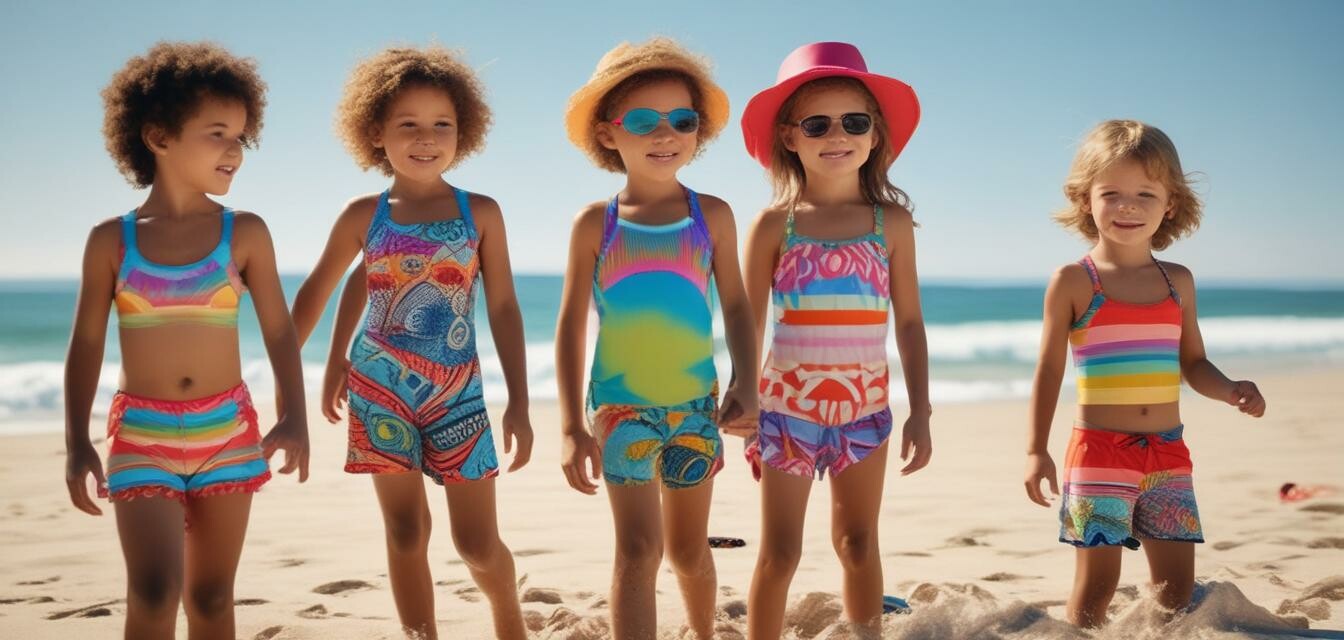
How to Choose the Right UPF Swimwear for Kids
- Look for UPF ratings of 30 or higher for effective sun protection.
- Consider the fabric type for comfort and durability.
- Choose styles that your child will love and feel comfortable wearing.
- Check for additional features like moisture-wicking and quick-drying properties.
- Fit is crucial; ensure the swimwear is snug but not too tight to allow for comfortable movement.
Selecting the right UPF swimwear for kids can be challenging for many parents. With the rising awareness of skin protection from harmful UV rays, it’s essential to ensure they are well-protected while enjoying their time in the water. This comprehensive guide will help you navigate through different options and choose the best UPF swimwear for your little ones.
Understanding UPF Ratings
UPF, or Ultraviolet Protection Factor, is a rating that indicates how much UV radiation can penetrate the fabric. The higher the UPF rating, the better the material protects against harmful rays. Here’s a breakdown of what different UPF ratings mean:
| UPF Rating | Protection Level |
|---|---|
| UPF 15 | Good Protection |
| UPF 30 | Very Good Protection |
| UPF 50+ | Excellent Protection |
For optimal sun safety, look for swimwear with a UPF rating of at least 30 or higher.
Factors to Consider When Choosing UPF Swimwear
1. Fabric Type
The fabric used in UPF swimwear can significantly influence comfort and performance. Here are some common materials:
- Polyester: Known for its durability and water resistance.
- Nylon: Lightweight and quick-drying, ideal for active children.
- Spandex: Offers stretch and flexibility for comfortable movement.
2. Styles and Designs
Kids are more likely to wear and enjoy swimwear that they find stylish and fun. Look for:
- Bright colors and fun patterns.
- Different styles like one-pieces, rash guards, or swim trunks.
- Functional designs that include features like zippers and pockets.
3. Additional Features
Modern UPF swimwear often comes with extra features to enhance comfort and protection:
- Moisture-wicking: Helps in drawing sweat away from the skin.
- Quick-drying: Reduces the time spent in wet clothing.
- Chlorine resistance: Extends the lifespan of swimwear used frequently in pools.
4. The Right Fit
Ensure that the swimwear fits well. An ideal fit is snug without being too tight, allowing for ease of movement. Here are some fitting tips:
- Have your child try on the swimwear if possible.
- Check for any tight areas, especially around the seams and straps.
- Ensure that the swimwear stays in place when they move.
Pros of UPF Swimwear
- Provides extended protection from harmful UV rays.
- Reduces the need for constant sunscreen application.
- Durable and often designed for active play.
Cons of UPF Swimwear
- Higher initial cost compared to regular swimwear.
- Can be limited in fashion choices for older kids.
Where to Buy UPF Swimwear
There are various places to purchase UPF swimwear, including:
- Retail department stores.
- Online marketplaces such as children's apparel websites.
- Sporting goods stores that specialize in outdoor attire.
Conclusion
Choosing the right UPF swimwear for your children doesn't have to be a daunting task. By understanding the UPF ratings, considering the fabric type, selecting fun styles, and ensuring a proper fit, you can make an informed decision that helps keep your child safe while they enjoy the sun and water. With the provided tips and considerations, you’ll be well on your way to selecting swimwear that combines both protection and style.
Tips for Parents
- Check for care instructions to maintain UPF effectiveness.
- Involve your child in the selection process to ensure they like their swimwear.
- Always reapply sunscreen to exposed areas for added protection.
For more information on protecting your child from the sun, check out our Buying Guides to gain further insights.